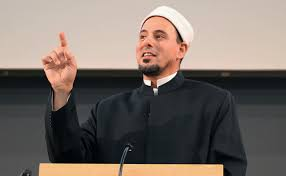
On March 15, 51 people were shot dead by a lone gunman at two mosques in Christchurch. A week later Imam Gamal Fouda of Al Noor Mosque, one of the mosques attacked, gave a speech to thousands gathered at Hagley Park. His words “we are heartbroken not broken” and “we will not let anyone divide us”, encapsulated the response from the Muslim community in New Zealand. More than nine months on, Mr Fouda is still sharing his words of love and peace. “New Zealand now, they set a role model for the whole world and we are sitting on the international stage to export love, tolerance and understanding – and we should continue this message from the top person in this country to the normal person like me,” he told TVNZ1’s Breakfast today. “We should continue the message of love and tolerance and understanding and to tell the whole world New Zealand is still one of the safest places in the world and we are working together so that this, something like this won’t happen again in our country.”
Mr Fouda said when he moved to New Zealand 16 years ago from where he grew up in Egypt he didn’t know a lot about his new home he just thought it was “the safest place on earth” but going out for the first time was still a nervous experience. The first time he went for a walk a man passed him on the street and said, “Hello, bro.” Mr Fouda said the words were “very unfamiliar” at the time, but upon learning New Zealand’s slang, he realised it was the same words of those spoken to the gunman who entered the Al Noor Mosque on March 15. “We felt very safe as we know about New Zealand and this also brother in front of the Christchurch mosque, he said to the gunman, ‘Hello brother.’ He did not expect him to shoot him,” he said.
Mr Fouda said learning about love, understanding and tolerance of different cultures and beliefs should start from primary school age.”As I’ve talked before in many events, that I need to see a book called Peace Education, and peace education – the children are going to learn about other cultures, other religions, other faith and even language, and the teachers, educationalists they need to talk about tolerance and understanding and make the inclusive society in the school culture. “The school culture should be a culture of tolerance and understanding,” Mr Fouda said.
(Extracted from www.tvnz.co.nz)

COMMENTS